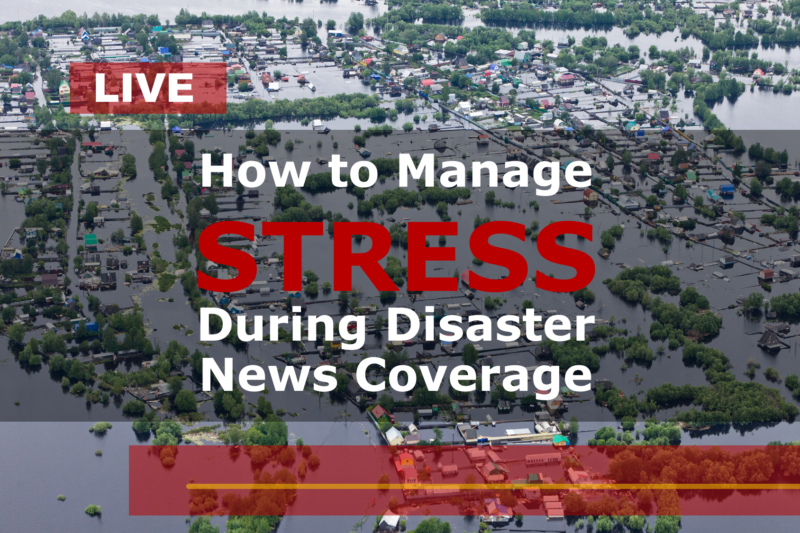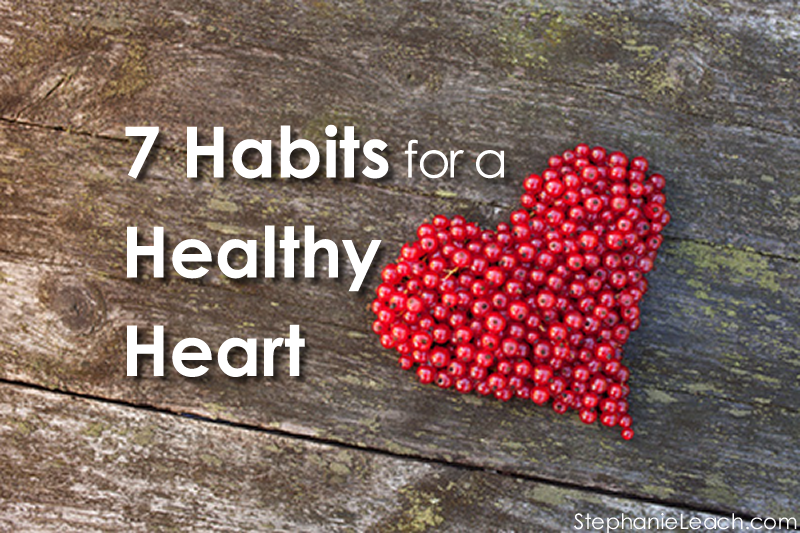This past week, Southeast Texas experienced record flooding due to Hurricane Harvey.
It’s where I grew up and spent most of my life until about ten years ago.
Due to technology, I am able to watch local news channels livestream the devastation, and keep up with friends and family via social media posts.
Fortunately, most of my family’s homes were not flooded, and they are all safe. Some family members were able to gather donations or perform rescues in their boats.
But living over 1,000 miles away, I could do nothing at the moment to help the people down there, other than pray and assure them of my love and concern.
And watching 24/7 news coverage of just about every place I know completely covered with water has been incredibly stressful. Nothing compared to what flood victims are experiencing, of course, but the anxiety that viewers experience is real.
If you have ever watched constant news coverage of a natural disaster, you know what I mean.
It can be overwhelming.
If you ever find yourself in this situation, there are steps that mental health experts recommend to help reduce anxiety and protect yourself.
Turn Off the TV (or other device)
Studies show that disaster television viewing is associated with Post-traumatic Stress Disorder (PTSD) caseness and Post-traumatic Stress (PTS.)
PTS is considered a normal reaction to a stressful event. Your body goes into “fight-or-flight” response, digestion shuts down, your muscles tighten, your hands may sweat and you breathe faster.
We may not notice some of these symptoms at first, but if you pay attention to your breathing you may notice that it is shallower. You may feel tension in your neck and shoulders, or notice you don’t have much of an appetite. If so, you may be experiencing PTS.
At some point you may need to turn off the news coverage and give your senses a break.
The urge to watch non-stop is strong. But mental health experts recommend limiting your exposure to images of a disaster. Viewing these scenes over and over again only increases anxiety.
If necessary, tune in periodically to get the needed updates, then turn it off.
Do Something Helpful
If you are in a position to do something to help those experiencing a disaster, you are probably already doing it. Offering help in whatever way you can is a good way to channel that stress into something useful. Gather donations, or put together a care package you can mail to family or friends in the affected area.
Do Something You Enjoy
If you are watching news coverage of a disaster and are unable to offer practical assistance, it is okay to do something you enjoy. Read a book. Watch a movie. Take your mind off the stressful event for a bit.
Distract Your Kids
If you have children, they are likely feeling the stress and anxiety too. Limit their exposure to news coverage by playing a game or pulling out old photo albums. Go into the kitchen and make a fun and healthy meal or snack with them. If they are usually in school but are stuck at home, have them do some school work.
Clean the House
When I was stuck at home for several days during a previous Houston area flood event, Tropical Storm Allison, there was little I could do at the time to help in a practical way. I got busy cleaning the house. It was something I could do, and a clean and tidy house is calming and reduces anxiety.
Take Care of Yourself
Strive to keep as normal a routine as possible. This includes eating healthful meals at normal times. You may not feel like eating, but a small meal will do much to help sustain you during a stressful event. Or, you may be tempted to “stress-eat,” reaching for high fat, salty or sugary foods. Be aware of it, and try to satisfy those cravings with something healthy, or distract yourself with an activity.
Avoid or limit alcohol, as the “stress relief” from alcohol consumption is only temporary and can result in feeling worse later.
Get proper rest. The stress of a disaster is incredibly tiring. Take a nap. Go to bed early. When you are well rested, you can usually handle stress better.
Natural disasters are frequent, and news coverage is 24/7. While I am grateful to be kept informed, I know it is not healthy to watch it non-stop.
High anxiety is damaging. If you are trying to live a healthy lifestyle and take care of your body with proper nutrition and movement, managing your stress is part of that work.
Have you successfully managed your stress and anxiety during news coverage of a natural disaster? Please share your suggestions in the comments below.









Leave A Comment